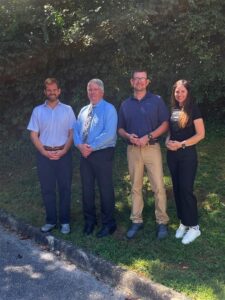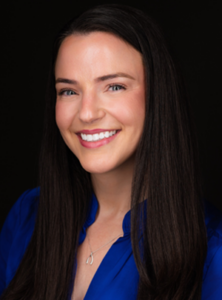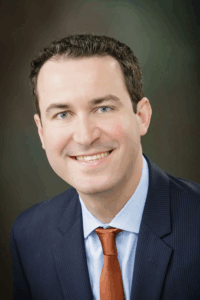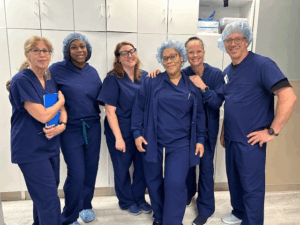
In a recent news feature, Dr. Jenny O. Smith shared, “We genuinely care about our patients, and we have an incredible team. Our physicians are committed, our staff is outstanding, and we’re proud to be part of this community. We’re here to serve—and that’s what drives us every day.”
Join us in congratulating each physician on this outstanding achievement and for their continued commitment to caring for patients in Blount County, Tennessee and beyond. Watch the full WBIR feature here.

 Healthy vision enables patients to connect socially, perform daily tasks and maintain independence. When eyesight becomes blurred, faded or unclear, individuals may withdraw from previously routine activities, such as reading, driving or family time.
Healthy vision enables patients to connect socially, perform daily tasks and maintain independence. When eyesight becomes blurred, faded or unclear, individuals may withdraw from previously routine activities, such as reading, driving or family time. Abbey Vandersall, MD. Senior Vice President and Chief Clinical Officer at AMSURG (Nashville, Tenn.). As the youngest executive and only physician on AMSURG’s leadership team, Dr. Vandersall oversees clinical quality, safety and patient experience across more than 250 ambulatory surgery centers serving millions annually. She launched AMSURG’s first patient experience program, achieving record satisfaction scores in the company’s 30-plus year history, and led a pilot connecting 10,000 high-risk patients to timely colon cancer screenings. Her advocacy efforts successfully reversed Blue Cross Blue Shield of Massachusetts’ decision to stop covering anesthesia for colonoscopies. Dr. Vandersall developed a first-of-its-kind value-based ASC care model that helped align enhanced reimbursement with optimal patient care. Her team’s efforts contributed to 64 AMSURG centers being named among the nation’s best by U.S. News & World Report. She has served on national health organization boards and taskforces, including the American Cancer Society’s national colorectal cancer roundtable, the Colon Cancer Alliance’s “Never Too Young” taskforce, and the Susan G. Komen Foundation board in Nashville. Prior to AMSURG, she played a key role in Nashville, Tenn.-based Envision Healthcare’s $8 billion restructuring, ensuring care continuity for 25,000 clinicians and countless patients.
Abbey Vandersall, MD. Senior Vice President and Chief Clinical Officer at AMSURG (Nashville, Tenn.). As the youngest executive and only physician on AMSURG’s leadership team, Dr. Vandersall oversees clinical quality, safety and patient experience across more than 250 ambulatory surgery centers serving millions annually. She launched AMSURG’s first patient experience program, achieving record satisfaction scores in the company’s 30-plus year history, and led a pilot connecting 10,000 high-risk patients to timely colon cancer screenings. Her advocacy efforts successfully reversed Blue Cross Blue Shield of Massachusetts’ decision to stop covering anesthesia for colonoscopies. Dr. Vandersall developed a first-of-its-kind value-based ASC care model that helped align enhanced reimbursement with optimal patient care. Her team’s efforts contributed to 64 AMSURG centers being named among the nation’s best by U.S. News & World Report. She has served on national health organization boards and taskforces, including the American Cancer Society’s national colorectal cancer roundtable, the Colon Cancer Alliance’s “Never Too Young” taskforce, and the Susan G. Komen Foundation board in Nashville. Prior to AMSURG, she played a key role in Nashville, Tenn.-based Envision Healthcare’s $8 billion restructuring, ensuring care continuity for 25,000 clinicians and countless patients. Wearing thick, heavy glasses wasn’t a style choice for Abi Titus growing up; it was a necessity.
Wearing thick, heavy glasses wasn’t a style choice for Abi Titus growing up; it was a necessity. A few months after the Niagara Falls trip, Titus met with ophthalmologist and AMSURG physician partner
A few months after the Niagara Falls trip, Titus met with ophthalmologist and AMSURG physician partner  Eight months after her procedure, Titus is filled with gratitude. Life without glasses has brought crystal-clear vision and a brighter outlook.
Eight months after her procedure, Titus is filled with gratitude. Life without glasses has brought crystal-clear vision and a brighter outlook. AMSURG’s
AMSURG’s 